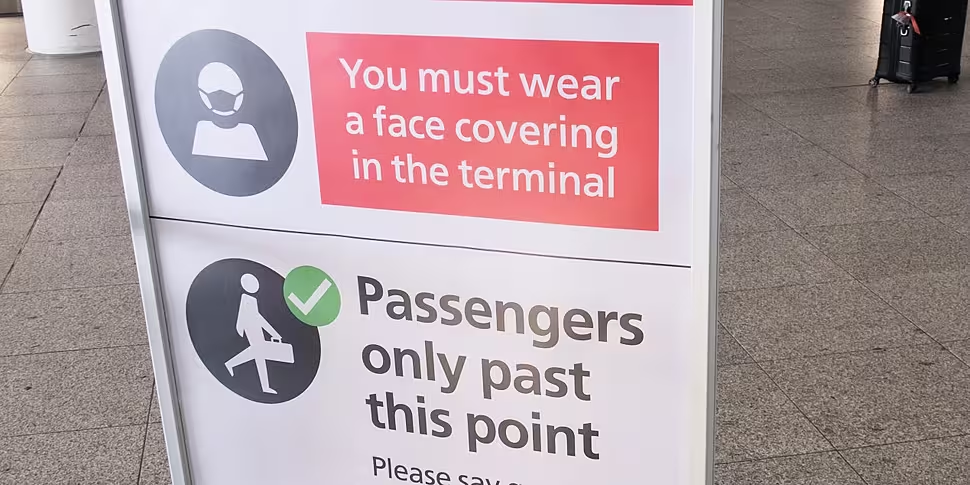Anyone who arrived in Ireland from Britain since December 8th is being told to stay in their room for 14 days from the date they arrived.
The HSE says 'stricter advice than usual' around self-isolation is being issued due to concerns over the new strain of COVID-19 that has been detected in Britain.
Anyone affected is also being told to contact their GP to get a coronavirus test five days after their arrival here.
If you've arrived into the RoI from Great Britain since 8 December, you should:
➡️self-isolate (stay in your room) for 14 days from the date you arrived
➡️phone a GP to get a COVID-19 test 5 days after you arrived
Please visit: https://t.co/EYwGU55czQ #COVID19 #StaySafe pic.twitter.com/fKViloOlrG— HSE Ireland (@HSELive) December 22, 2020
The HSE advice covers England, Scotland or Wales, but not Northern Ireland.
A ban on travel from Britain was first announced on Sunday night, and will now continue until the end of the year.
The Government says a 'very limited' repatriation service will continue over the next week for Irish residents stranded in Britain.
Two special consular flights arrived in Ireland last night, with a number of people also accommodated on ferry routes.
Around 350 stranded residents were able to return home.
In a statement, the Department said a very limited repatriation service will also continue during the current travel restrictions to help other Irish residents who need to get back to the country.
We have set up a GB Emergency Travel Helpline ☎️+353 (0) 1 613 1700
This helpline answered over 500 calls yesterday. We would ask people to be patient as we deal with this high volume of queries
Please contact the helpline only if you fall into the categories below pic.twitter.com/5Cd9DtOkKk— Irish Foreign Ministry (@dfatirl) December 22, 2020
A spokesperson said the service is not available for citizens normally resident, studying or working in Britain.
They said it will be available for essential travel only and must be arranged through the Department.
France, meanwhile, is reopening its borders with the UK , but only for people who test negative for coronavirus.
Anyone who normally lives in the EU or is a European Union national can travel.
Testing sites are being set up today, but the UK's transport secretary Grant Shapps admits the backlog of freight at Dover could take days to clear.









